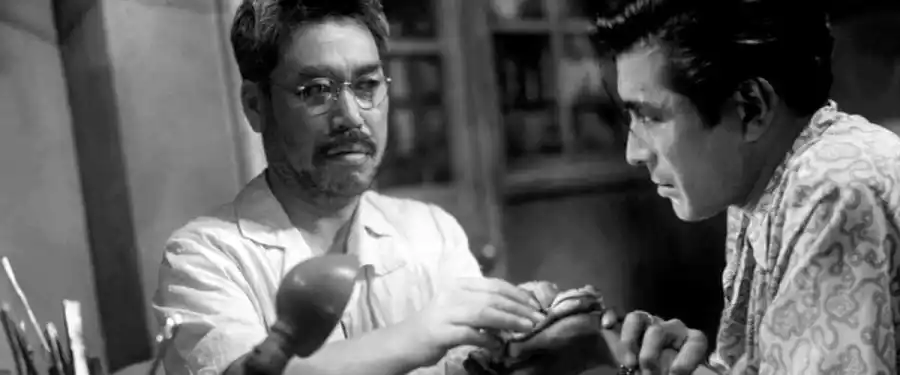I’ve been thinking about what truly motivates us. This led me back to Immanuel Kant and his concept of “postulates.” These are the unprovable beliefs that underpin our actions. To explore this, I see a powerful example in Akira Kurosawa’s film, Drunken Angel.
Table of Contents
🤔 What is a Kantian Postulate?
A postulate is an assumption you can’t prove, but you need it to build something else. In his Critique of Practical Reason, Kant identified things like God, immortality, and freedom as postulates. I can’t prove them with theoretical reason. But I need them for practical reason—the part of my mind that guides moral choices.
⚖️ The Tension of Reason
Practical reason is what forces us to act. It creates a tension. My mind knows what is theoretically possible, but practical reason asks what I should do. This tension gives birth to morality and law. It’s the source of duty. A doctor feels a duty to treat a patient. This isn’t based on proof, but on a moral principle. It’s a choice driven by an underlying belief.
🩺 The Doctor’s Motivation
This is where Kurosawa’s Drunken Angel comes in. I look at the doctor, Sanada, who treats a sick gangster. Why does he do it? There is no clear personal benefit. This action, I argue, is driven by postulates. He acts for the good of another, even when the outcome is uncertain. These unprovable beliefs give his actions meaning. Without such assumptions, why act morally at all?
🌱 The Necessity of Belief
I believe postulates are essential for human existence. We can’t live without them. I can’t even prove the ground will be there when I take a step. I assume it will be. Kant used God and the immortality of the soul as key postulates. The idea of a creator who gives us freedom provides a basis for morality. The idea of an immortal soul allows for the hope that our good deeds will find perfection, even if not in this life.
⚫ Kant’s “Radical Evil”
In his writings like Religion and Rational Theology, Kant also discussed “radical evil.” He saw it as a natural human inclination towards selfishness. This tendency is precisely why we need a strict moral law, guided by our postulates, to overcome it. We choose good over evil because of our freedom of will, but the motivation behind that choice is complex.
❓ Sanada’s Unseen Postulates
So, what are Dr. Sanada’s postulates? He seems driven by a hope for a better future or a belief that people can change. But honestly, his motivations feel unclear to me. I question if he acts from pure altruism. Or is he, perhaps unconsciously, seeking redemption for his own past regrets? This ambiguity is a hallmark of Kurosawa’s characters. The film doesn’t give an easy answer, leaving me to wonder about the hidden beliefs that truly drive a person.
Summary
My reading of Kant’s philosophy suggests that “postulates”—unprovable beliefs like freedom and morality—are necessary for human action. I see a powerful illustration of this in Akira Kurosawa’s Drunken Angel. The film’s central character, Dr. Sanada, acts out of a sense of duty that cannot be explained by simple logic or personal gain. His actions are driven by his own set of postulates. Referencing Kant’s Critique of Practical Reason and his concept of “radical evil,” I question the doctor’s true motivation. Is it pure altruism, or a subconscious desire for self-redemption? The film brilliantly leaves this open, forcing me to confront the essential role that these unprovable, foundational beliefs play in all our lives.
